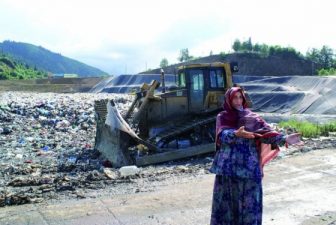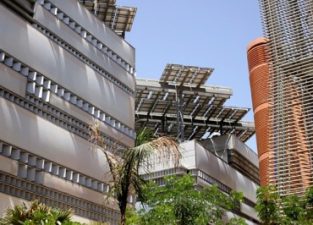 A solar band-aid: Spain and the UN looks to create solar power heating, mainly water, for hospitals in Lebanon.
A solar band-aid: Spain and the UN looks to create solar power heating, mainly water, for hospitals in Lebanon.
Thanks to a contribution from Spain, Lebanon’s first solar power heating project for hospitals have been made possible, the Lebanese newspaper The Daily Star is reporting. The project is part of the Lebanese government’s plan called Country Energy Efficiency and Renewable Energy Demonstration Project for the Recovery of Lebanon (CEDRO); it aims to reform the country’s energy sector by promoting the use of renewable energy in public institutions. CEDRO is managed by the Lebanese government together with the United Nations Development Program.
The CEDRO project works on five levels: The first involves the establishment of a demonstrative model addressing public-sector building and facilities; the second tackles the activation of the replication process; and the third aims at triggering of a national sustainable energy strategy and action plan.
The fourth level increases the availability of validated data on energy consumption patterns, and renewable energy and energy efficacy performance costs and benefits.
The fifth level consists of supporting the formulation of a national sustainable energy strategy and action plan through a research and development program.
The solar panels will primarily be used for providing the hospital with warm water and local officials claims that thanks to the new source of energy the warm water bill be halved. Other pilot projects listed on the UNEP website includes pilot projects for city lighting, PV systems, energy efficiency projects, and the development of small wind turbines.
The push for solar power heating in Lebanon and especially in the southern part of the country does unfortunately not only stem from a concern for the environment but also from necessity.
During the 2006 war between Hezbollah and Israel much of power production infrastructure and many homes in the southern part of Lebanon were destroyed as Israel used its air force to try and subdue rockets fired from villages.
Efficiency out of war
Out of the destruction of the war came the initiative make the new homes as cheap and energy efficient as possible to save the owners as much as money as possible. The use of low energy light bulbs was at that time expected to be 80% cheaper the regular light bulbs and the use of solar power for water heating would cut 25-30% from the total energy bill.
According to the AP, the problem of sufficient power production is not only confined to the south of Lebanon but is becoming a national concern affecting both the country’s economy and environment as people resort the use of diesel generators to have electricity during frequent black outs.
::Daily Star
Read more on Lebanon’s environment:
Take Your Team to Lebanon’s Eco-Village
Eco Tourism in the Middle East: Lebanon
Lebanese Prefer “Green With Envy” Maseratis Over Eco-Friendly Hybrids Cars
Lebanon Looks to “Smart Grid” and Renewable Sources to Generate 12% of Its Electricity by 2020




9 thoughts on “Spain to Provide $10 million for Solar Power Hospitals in Lebanon”
Comments are closed.